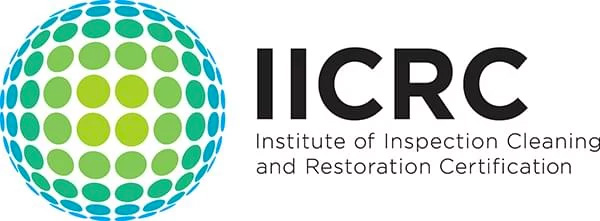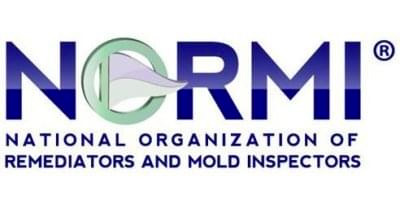What You Need To Know About Florida's Mold Laws and Regulations
In recent years, mold has become a known issue. It’s become the topic of closed schools, lawsuits, and the impetus for the growth of a “new” industry, mold testing and remediation.
If you own a rental property, you should take a mold problem seriously. Mold prospers in warm, damp places, and is an environmental hazard. It often grows quickly in areas with humidity problems and poor ventilation such as attics and basements. As such, a mold problem can spiral fast in a rental.
While mold is typically associated with buildings in humid, musty, damp conditions, no rental unit is safe from mold contamination. In a rental unit, it can occur following a faulty plumbing or an unattended spill.
In Florida, there are mold laws in place in case of any problems. So, not only can the cleanup costs and repair bills become expensive, but landlords could also face lawsuits from their tenants.
What is Mold?
Mold is a common type of fungus that thrives in moist, warm conditions. Just like an animal or plant, it breathes, consumes, and requires water to survive.
Unlike plants, mold doesn’t need sunlight to grow, at least not directly. It feeds on dead organic matter, including animals and plants. Because of this, dark, damp places are their favorite places to proliferate.
There are several thousand known mold types. Most are harmless to humans and can grow anywhere so long as there is oxygen, organic material, and moisture.
Mold reproduces by creating spores, which are released into the air. The spores are found in the air we breathe, but extensive mold contamination may cause health problems.
.jpg)
Your tenants may begin experiencing these symptoms if the mold has a history of causing health problems:
- Unexplained chronic fatigue
- Fever
- Aches and pains
- Nervous system problems (headaches, moodiness, memory loss)
- Prolonged muscle cramps and joint pain
- Serious swelling in the torso or stomach
- Serious swelling of legs, ankles, and feet
- Exhaustion after routine activity
- Aggravation of asthma
- Heart palpitations
- Tremors
- Dizziness
- Burning, itching, watering eyes
- Persistent cold-like or flu-like symptoms
- Skin irritation
- Nausea or uncontrollable vomiting
- Shortness of breath
- Nose and throat irritation
- Wheezing and cough
- Chronic clogged throat
Types Of Mold Found In Houses
There are seemingly endless species of mold, but the following are the most common types found within a home:
- Zygomycetes
- Ulocladium
- Torula
- Stachybotrys
- Scopularlopsis
- Pithomyces
- Myxomyceted++
- Ganoderma
- Fusarium
- Epococcum
- Curvularia
- Cladosporium
- Chaetomium
- Bipolaris++
- Bisidiospores
- Aspergillus/Penicillium
- Ascospores
- Alternaria
Remember, not all mold types are dangerous or cause health problems. However, for the harmful ones, a range of rules have been enacted in Florida’s landlord-tenant laws regarding their presence and removal.
Tenant Self-Help Strategies In Florida
If landlords fail to fix a mold problem in your Florida rental unit, the law provides tenants with two options. The first option is known as “repair and deduct.” With this option, tenants can take care of the mold cleanup themselves and then deduct the costs from the rent amount.
.jpg)
The second strategy is the “rent withholding.” Here, tenants can stop paying rent to the landlord, citing that the mold in the unit has made it uninhabitable.
In Florida, the “implied warranty of habitability” requires that a landlord provide habitable living conditions. So, whether mentioned in the lease agreement or not, the Florida rental law requires a landlord to abide by this.
Landlord Liability Under Florida Mold Laws
Currently, when it comes to mold, there is no federal or state law that covers a landlord’s duties. In addition, there are no laws that specifically address the landlord’s responsibilities regarding mold prevention and remediation.
That said, tenants can still try to recover damages from their landlord in court if they have been affected by the high concentration of mold in the units.
If the court finds that the mold damage was a result of the landlord’s negligence, the landlord could face heavy penalties.
Take, for example, one case of an investigation done by a local news channel. They uncovered a serious habitability issue in an apartment complex because of mold. Electrical outlets were exposed and posed a fire risk. The home was also flooded and had serious mold contamination. Reportedly, the city responded by fining the landlord a whopping $15,000 daily for violating 31 health and safety codes.
Mold Disclosure Requirements in Florida
While lead paint disclosures are required from a landlord, there are no regulations or statutes that require a similar disclosure when it comes to mold contamination.
Please note that, as a landlord, you need to disclose any mold issues to prospective tenants if you decide to list the property for sale.
Deducting Mold-Related Costs From a Tenant's Security Deposit
Under Florida landlord-tenant laws, mold resulting from a tenant’s carelessness qualifies as excessive property damage. This means that the landlord will be able to deduct the cleaning costs from the security deposit when they move out.
.jpg)
Just like any other damage beyond ordinary wear and tear, the landlord must notify their tenants of the mold damage costs within thirty days after the tenants move out. If tenants object to the damage, then the landlord may try the legal recourse.
If tenants don’t, then the landlord must send them the remaining security deposit within thirty days after sending the first notice.
How Can Florida Landlords Prevent Mold Problems?
Mold is not only toxic to renters, but it can also be destructive to the rental unit. Not to mention detrimental to landlords' reputations. To minimize the effects of a mold problem, landlords need to be proactive.
Read on for some tips to help you with this.
Use Mold Inhibitors in Your Property’s Paint
Mold spores are always going to be present. In the presence of moisture, they can grow rather quickly. Mold inhibitors work by effectively preventing mold spores from attaching to painted surfaces and growing.
So, the next time you are sprucing up your apartment for the next tenants, consider adding inhibitors to the paint.
Routinely Inspect Your Florida Rental Property
Routine inspections can help landlords identify mold problems early before they become serious and costly. Make sure you that you include these in your annual property inspection checklist: mold growth, moisture damage, and leak inspections.
Check Insurance Policies
Sometimes, renters or homeowner’s insurance policies will cover mold-related damages. Check to see whether your homeowner’s insurance policy covers a mold problem.
.jpg)
Additionally, encourage your tenants to get renters insurance. You could even consider making it a qualification before they can sign the lease.
Clean Up After a Spill Or a Flood
Whether a huge rainstorm floods your rental property or a bucket of water spills on the carpet, the key to preventing mold problems is by cleaning and drying these areas quickly.
Keep The Humidity Levels Low
Mold thrives in damp places. It’s important to keep the humidity levels below 60%. This can be done with a dehumidifier or an air conditioner.
Ask Your Tenants To Take Advantage of Fans and Windows
Encourage your tenants to get into the habit of opening the windows or using fans after they shower. Using fans or opening the windows helps remove dampness that could easily attach itself to the ceilings and walls and provide a breeding ground for mold growth.
Fix All Leaks As Soon As Possible
Without prompt water damage restoration, mold growth starts in as fast as 48 hours. Here are some things you can do to prevent a mold problem:
- Deal with any mold growth as soon as you find it to prevent further growth and possible health complications
- During routine inspections, check for any leaks or water damage beneath cabinets and around all water fixtures
- Encourage your tenant to place a maintenance request immediately when they spot a mold problem
- Always conduct a move-in inspection before the tenant moves in
Bottom Line
As a landlord in Florida, it’s your responsibility to ensure your tenants live in habitable living conditions. Among other things, that means making sure your property adheres to Florida’s landlord-tenant laws regarding mold.
To ensure that your rental properties are properly cared for, consider hiring a professional property management company. They can help with regularly inspecting your property to check for any traces of mold, as well as maintain the units, conduct tenant screening, and more!


